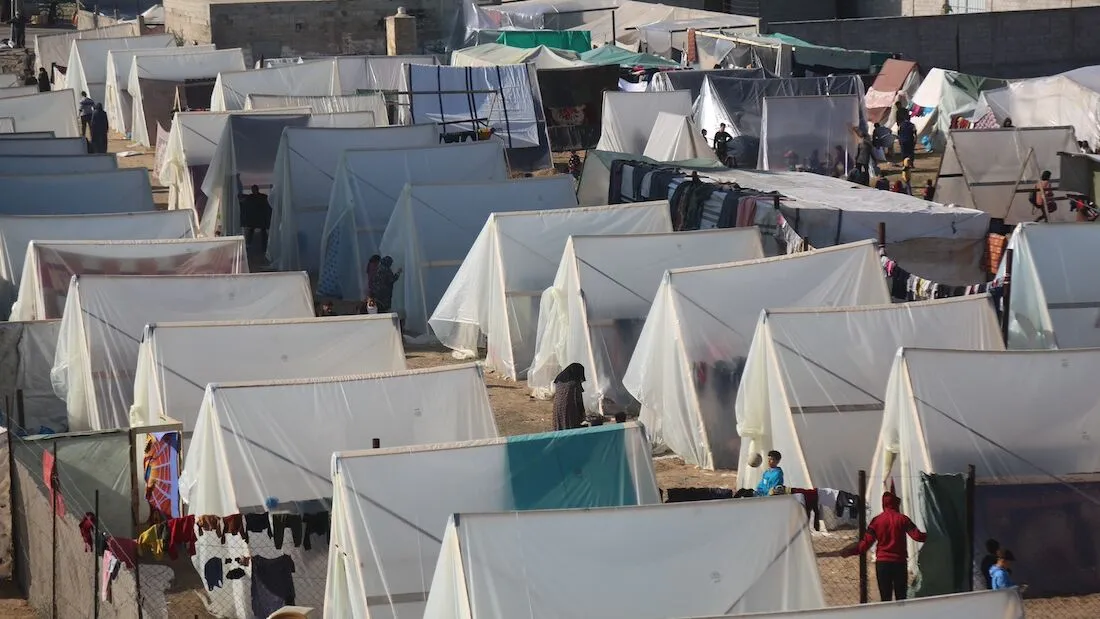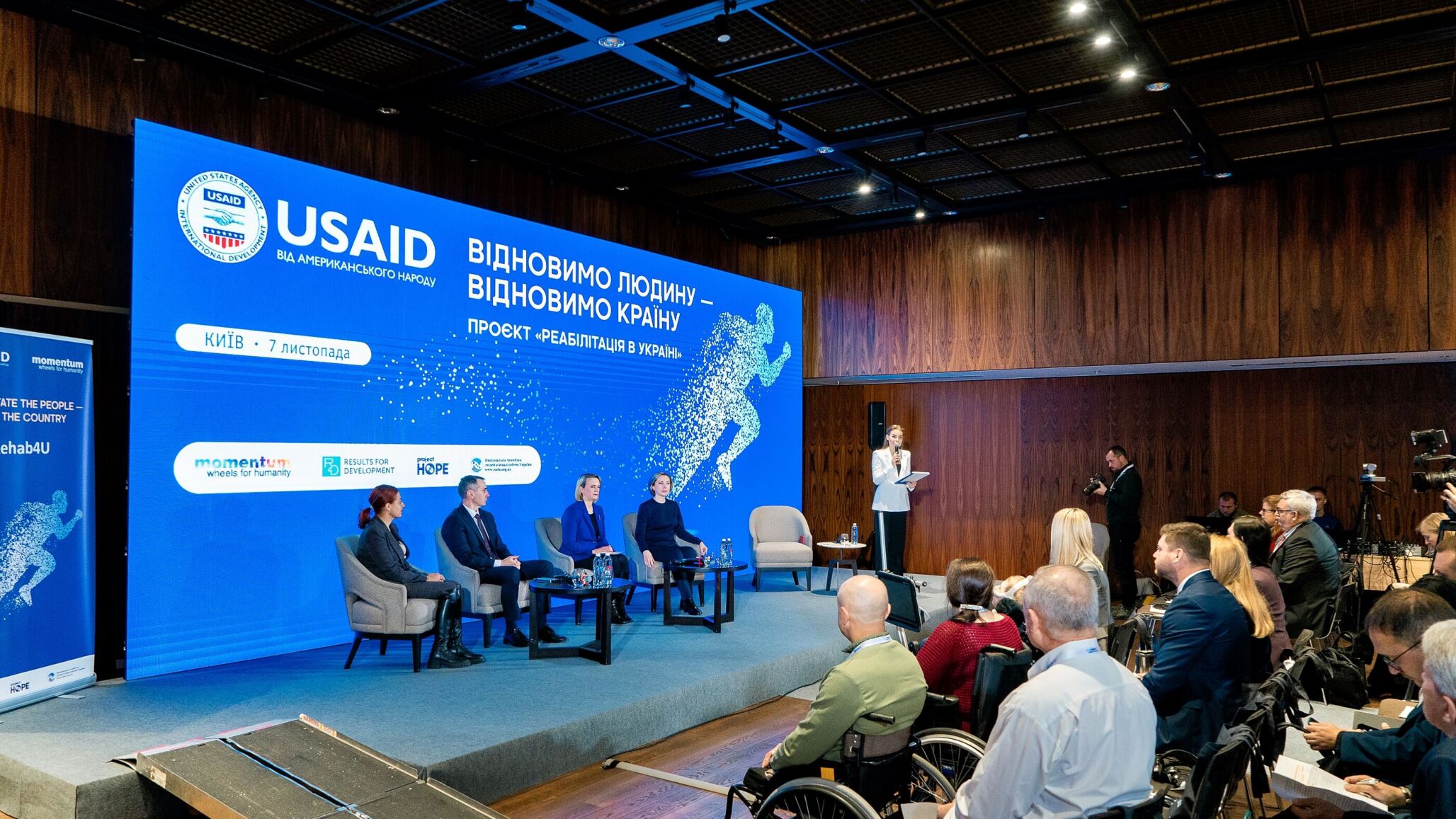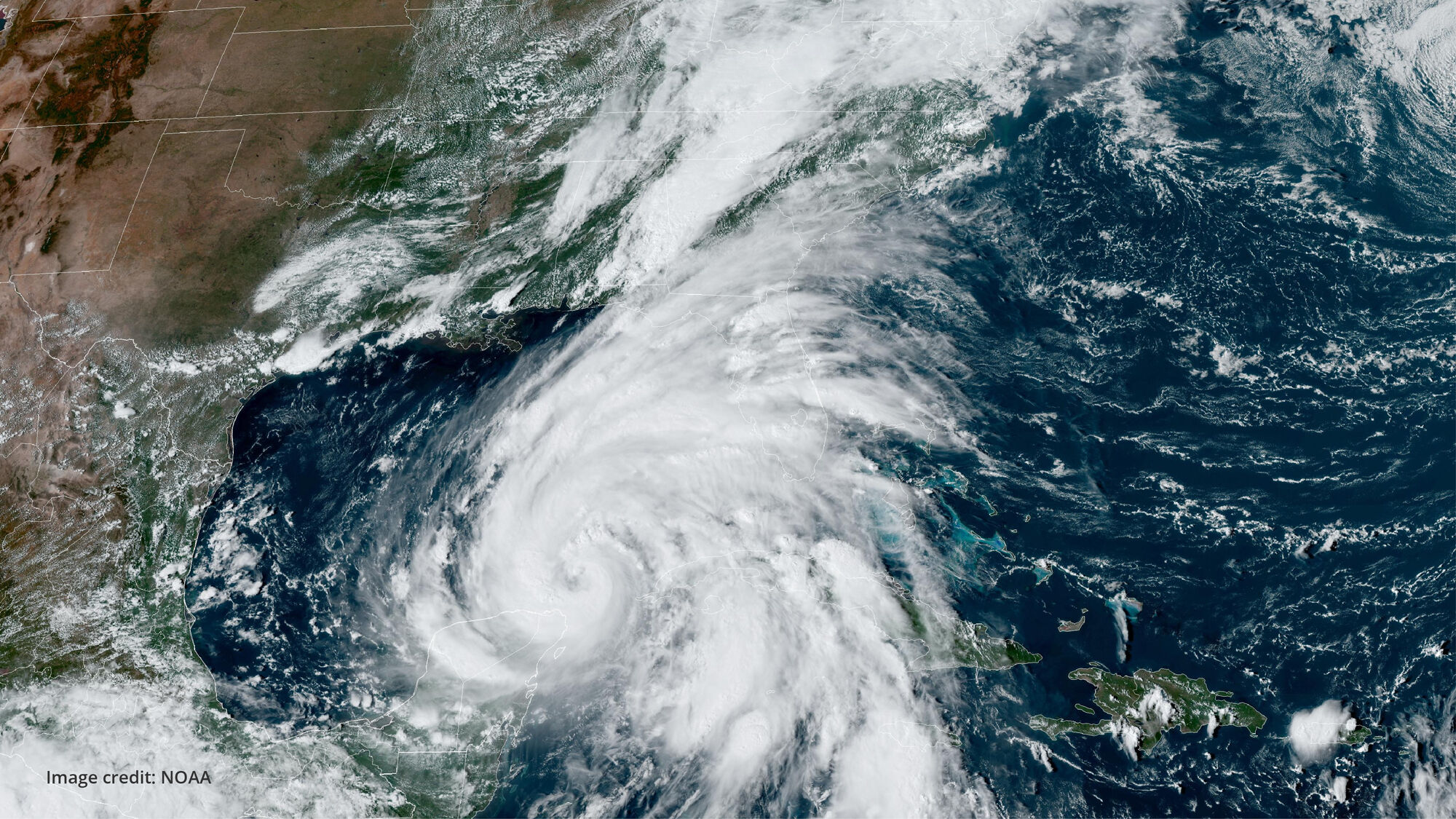Inside Rafah’s Deteriorating Health Crisis

Health conditions are rapidly deteriorating in Rafah as a possible ground offensive nears. Project HOPE reports that 1 in 5 children under age two showed signs of malnutrition in an underserved displacement camp in Rafah.
This week, the Israeli Government announced plans to move forward with a ground offensive in Rafah despite concerns from the international community about the severe impact it would have on civilian lives. As the threat of forced evacuation or an escalation of violence looms, the health of people living in Rafah is rapidly deteriorating. Inhumane and crowded living conditions, limited access to clean water and food, and inadequate hygiene facilities have led to an increase in cases of hepatitis A, upper respiratory tract infections, tonsillitis, and urinary tract infections.
Malnutrition rates are on the rise due to limited availability, loss of income, and soaring food prices linked to the destruction of Gaza’s food system. At Project HOPE’s clinic in Jaafar Al-Tayyar, an underserved displacement camp in Rafah, 1 in 5 children under the age of two exhibited signs of malnutrition over the last month. The camp has turned into a breeding ground for disease and illness. Over 100,000 people are crammed into one area. Project HOPE’s team reports that it is common for 20-30 people to live in just one tent and hundreds share access to one toilet and shower, which not only creates serious hygiene and disease concerns but poses protection risks for women, children, and others.
Rafah was home to 280,000 people before the war. Today, over one million people seek refuge in the small city. Families live in overcrowded tents, homes, and makeshift shelters with limited access to the necessities to survive. Project HOPE calls upon all parties involved to implement an immediate and sustained ceasefire to prevent the loss of more innocent lives.
Dr. Nour Al-Din Khaled Alamassi, Physician for Project HOPE, said:
“Everywhere around me, people are hungry. It is inevitable here, especially for children, pregnant women, and people with chronic illnesses. In our clinic, we constantly see people who are sick, uncomfortable, and hungry. Children’s bodies are deteriorating. Food is way too expensive and fresh foods like chicken or vegetables are impossible to find. We cannot rely on aid shipments for regular meals.
I recently met Nafisa Al-Dakakheneh, a 67-year-old, who moved from Gaza City to Rafah. She told me, ‘We had no food, no water, nothing – we’re tired. We were starving so we had no choice but to leave our home and come to Rafah.’ Nafisha has no home in Rafah. She sleeps on the hard ground under blankets hanging in the air as cover because she can’t afford a tent. Her grandchild tragically died in the hands of his mother due to lack of food and severe dehydration. Nafisa is terrified of dying. I resonated with her words, ‘We really need to feel like we’re human again.’
Naifsa’s story is not unique. If we do not die from violence, we could die from disease or hunger. More violence in Rafah would be devastating. The last safe haven in Gaza would be destroyed. Every day, I fear what might happen. I worry about having to be displaced constantly. We are living in a nightmare.”
Vira Topikha, Gaza Team Lead (currently in Rafah), said:
“We have heard reports of children dying from malnutrition and famine-like conditions in the north where the health system is nearly nonexistent. In Rafah, where the majority of aid organizations operate, we are starting to see more and more children show signs of malnutrition – swollen stomach, fatigue, and weakened immune systems. When children are hungry, their bodies can no longer fight off disease or heal from injuries. This is problematic as families are crowded into one small space, causing infectious diseases to spread quickly.
One of the most urgent health issues we see at our clinics is the rise in hepatitis A cases as people come in seeking help for diarrhea, nausea, and high fevers. Hepatitis A is a highly contagious infection that affects the liver, caused by contaminated food and water and poor sanitation such as unwashed hands. If untreated, it can lead to acute liver failure.
As we continue to see more and more people with worsening health issues in the safest place in Gaza, I cannot fathom the repercussions a ground offensive here could have. All humanitarian assistance would be brought to a halt and people would be cut off from lifesaving medical care and medication. A ground offensive would be a death warrant for over a million people.”
Project HOPE is actively supporting Palestinian communities affected by the conflict. Our team in Gaza has treated over 9,000 patients in Deir al Balah and has provided primary health care to over 6,000 people at three sites in Rafah, including an underserved displacement camp and school housing displaced families. We also have emergency and trauma medical staff providing care at Al Aqsa Hospital in Deir Al Balah through our partner JHASi. Project HOPE has provided mental health support through local partners and has distributed family hygiene kits, mattresses, and blankets to ANERA. We have prepositioned additional medical supplies that are still awaiting entry into Gaza.
Notes to the Editor:
- At Project HOPE’s clinic in Jaafar Altayyar Camp, the team screened 125 children from 6 months old to 2-years-old between February 17 and March 16, 2024, and 30 children showed signs of malnutrition, including 5 children who were severely malnourished.
For Media Inquiries: media@projecthope.org



